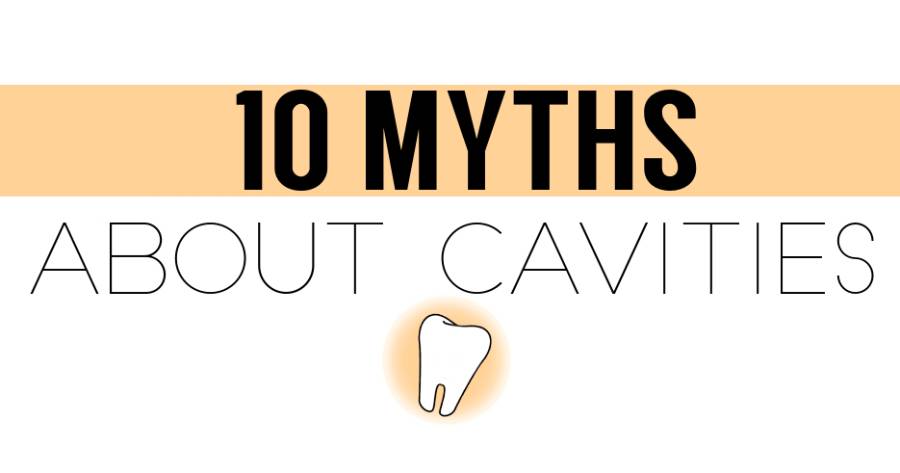
1. Sugar is the only thing that causes cavities.
While sugar does cause cavities, it’s the bacteria in the mouth that truly initiates tooth decay. Any consumed carbohydrate can create bacteria – be it sugar, bread, fruits or vegetables.
2. Kids get more cavities than adults.
Thanks to fluoridated water, tooth decay in school-aged children has been cut in half. Conversely, cavities in senior citizens have increased due to medications that reduce saliva and dry out the mouth.
3. Aspirin next to a tooth will help a toothache.
Aspirin definitely has to be swallowed to have an analgesic effect. Also, aspirin is acidic and could cause a burning sensation if held on gum tissue, or an abscess if held against the tooth.
4. All fillings will need to be replaced.
Some fillings can last a lifetime. It all depends on oral hygiene and wear and tear.
5. You’ll feel it when a cavity forms.
At the point where you can feel tooth decay, it’s likely grown to be a sizeable issue. Visiting a dentist regularly can detect cavities before they become uncomfortable, and more difficult to treat.
6. Tooth sensitivity means you have a cavity.
Tooth sensitivity could be a general symptom of numerous things. Some people just have hypersensitive teeth.
7. Acidic foods have no effect on tooth decay.
Acidic foods cause erosion of tooth enamel, thus weakening the tooth and making it susceptible to cavities. Lemons, citrus fruits and soft drinks are all common culprits.
8. Chipped teeth don’t contribute to cavities.
Cracks and chips can create hiding places for food and bacteria. It’s always best to get these seemingly superficial imperfections checked by your dentist.
9. Cavities are the only reason for root canals.
While nerve damage inside a tooth can be caused by cavities, other types of trauma can create need for root canal treatment as well.
10. Baby teeth cannot develop cavities.
Baby teeth are susceptible to cavities, and these can cause severe pain and abscesses.